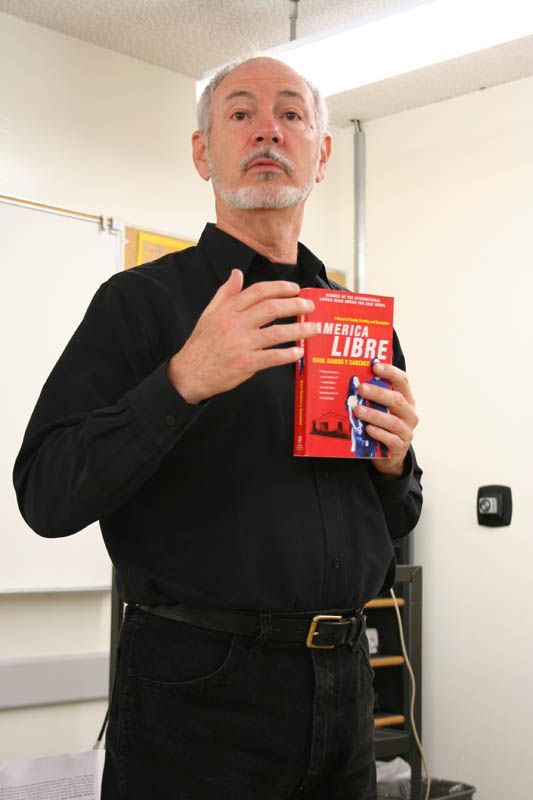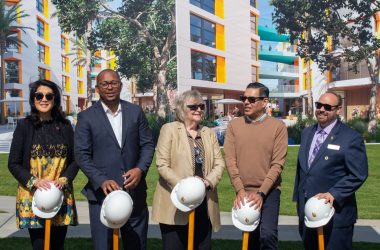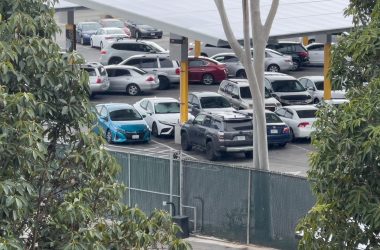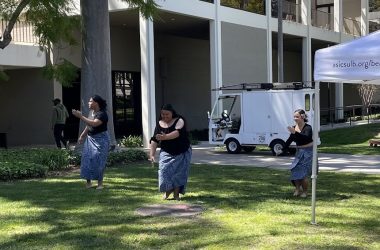It happened in Russia in 1917, in Cuba in 1959 and it might happen in the United States within the next decade.
Raul Ramos y Sanchez, author of the novel “America Libre,” introduced the concept behind his debut novel to Cal State Long Beach students last Wednesday during professor Armando Vazquez-Ramos’ Chicano/Latino Population in the U.S. course.
Ramos y Sanchez posed the idea of a Latino/Chicano revolution happening within the next decade “as the rhetoric over immigration grows more heated,” Ramos y Sanchez said on his Web site. He said he started writing his novel in 2004 as a warning against the dangers of extremism and how the often inaccurate portrayal of immigration in mainstream pop culture is fueling anger on both sides of the debate.
“There have been a lot of ethnic conflicts [in the past],” Ramos y Sanchez said. “What ‘America Libre’ wants to do is caution America against stereotypes and dangerous elements that could lead to [the situation in the novel] coming true.”
In Ramos y Sanchez’s novel, a man named Manolo Suarez is struggling to provide for his family as the immigration crisis in America reaches its boiling point. Chaos ensues as Anglo vigilantes start drive-by shootings in the barrios, and inner-city barrios eventually become walled-off quarantines. Suarez is then hired by a Latina radical who leaves him questioning his loyalty to his wife and his country.
Born in Cuba, Ramos y Sanchez said the Cuban revolution was the main inspiration for his novel.
“I was separated from my dad during the Cuban revolution,” Ramos y Sanchez said. “That was a huge influence [on my book]. It was the social upheaval [in Cuba], and how quickly it could happen; how widespread and scary it is.”
In a brief PowerPoint presentation, Ramos y Sanchez touched on America’s history with immigration and racial stereotyping in Vasquez-Ramos’ class.
“The reason that racial stereotypes exist is because racial stereotypes are easier to market,” Ramos y Sanchez said. “Homogenous Hispanic identity can intensify racist fears, and racial pigeonholing go hand-and-hand with oppression.”
Ramos y Sanchez continued to emphasize awareness to avoid falling into that way of thinking.
“[I see] fiction as social commentary,” Ramos y Sanchez said, citing works like George Orwell’s “1984.” “[My novel] is the perspective of a possible future we all want to avoid. There is blood on the streets in fiction to avoid it happening in reality.”
Vazquez-Ramos, Chicano-Latino studies lecturer, invited Ramos y Sanchez to his classroom to stress the importance of consciousness in how the Chicano/Latino community is perceived by society.
“I couldn’t be happier with the data and analysis,” said Vazquez-Ramos, addressing his students after Ramos y Sanchez’s presentation. “[I find it interesting that] the builders of our society who led the [American] revolution also led with a racist view and ideology. By the numbers, we are becoming threatened because we are also invading. At this point, two-to-one births are Latinos, which is something to consider.”
Bertin Rosales, a senior sociology major, agreed that the statistics Ramos y Sanchez gave are “proven” and can be easily seen in society.
“It was really good information,” Rosales said.




